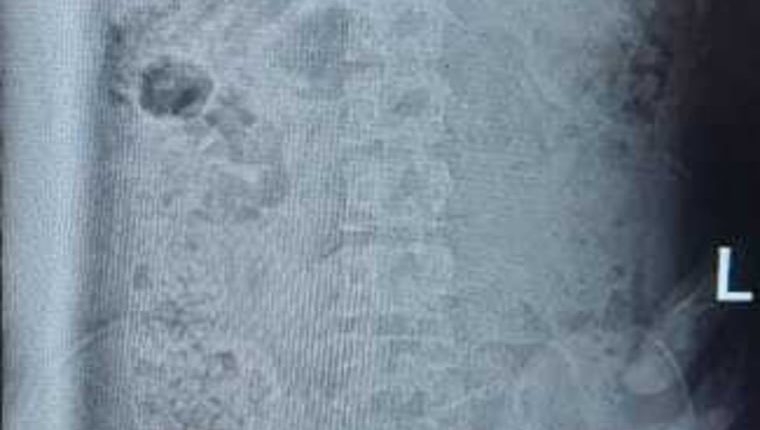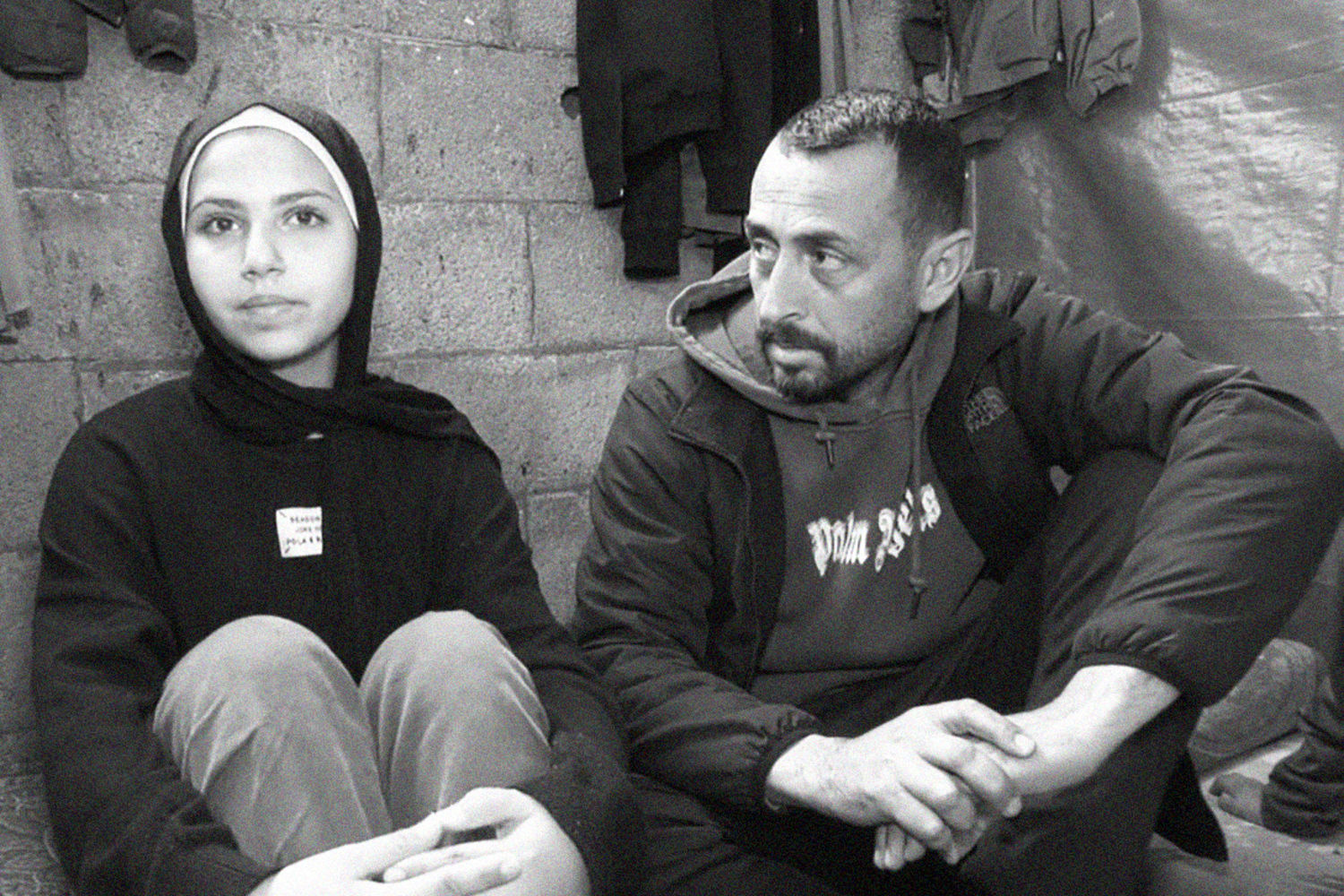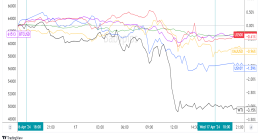It only took a moment for a bullet to lodge itself into 14-year-old Salma Alyazji’s back. A month later, it is still there.
“It didn’t change part of my life, it changed all my life,” Salma said.
The 14-year-old scholarship student was shot Jan. 25, said her father, Ehab Alyazji, and, in the month since, Salma is no closer to getting the critical surgery she needs, even as the injury transforms her life.
It’s not clear who fired the bullet that hit Salma. There were no clashes nearby at the time but she heard one shot ring through the building where her family and many others were sheltering in Khan Younis in southern Gaza. She went to check to make sure no one was hurt, when she heard a second shot.
“I felt a lot of pain and heat in my back and I began to get dizzy,” she said.
When she put her hand to her back, it came back covered in blood. “I began to scream and I fainted,” Salma told an NBC News crew in Gaza.
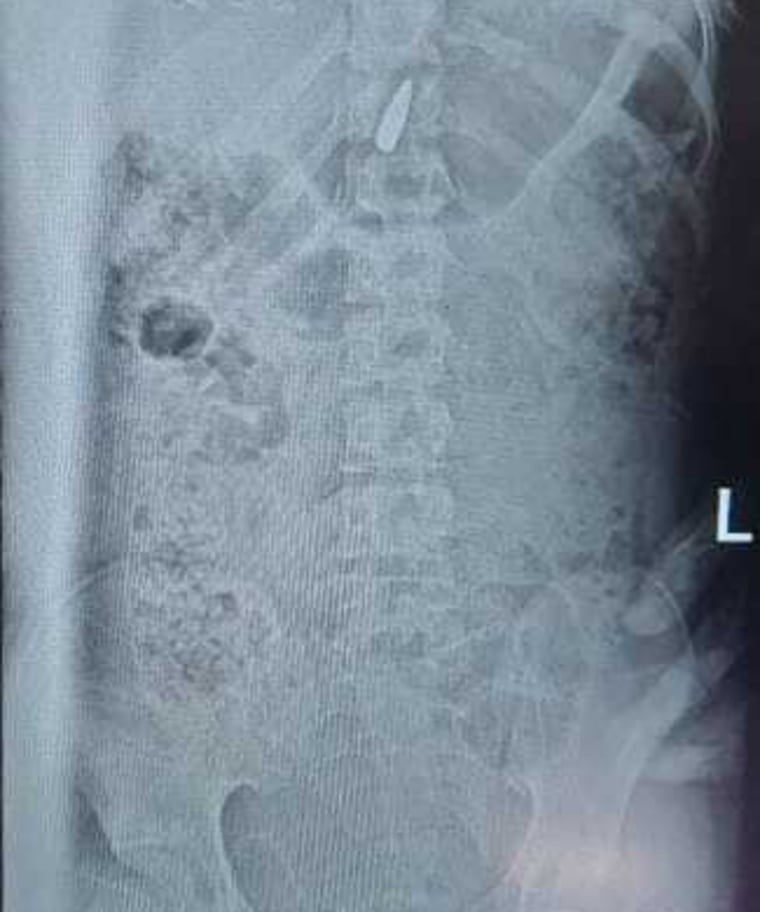
Salma has a vibrant mind. She was on scholarship at the prestigious Horizons Academy in Gaza, where her father said she was a top student. She wrote poetry and dreamed of studying abroad.
But now, she said, her ambitions have been drowned out by the anxiety of living with a bullet in her back. She is in pain, and struggles to perform daily life tasks without help.
“I no longer have any ambitions other than to get through this situation,” Salma said tearfully.
She spends her time preoccupied with the bullet: that it is leaking toxic chemicals into her body, that it may be causing her back to ossify and stiffen. She fears that it could move from its precarious place, between her spinal cord and her liver, and paralyze her if she’s lucky — and kill her if she’s not.
“Imagine a bullet in the body of a human like her — in the spinal column, near the spinal cord,” her father said.
Alyazji wants to find a way to get her surgery to remove the bullet and the danger it poses, but also “to change the psychological state that she’s in,” he said, “to take her out of harm’s way, where at any moment, anything might happen to her.”
“Where can I take her for treatment?” he said. “There is no capability entirely,” he said of the hospitals in Gaza, which are overwhelmed and collapsing under the weight of Israeli bombardment.
From the moment Salma was shot to the ongoing crushing strain of waiting for surgery, her life has become another harrowing illustration of how violence ripples through a life in wartime Gaza.
The day she was shot, her father said, it took seven hours before the Israel Defense Forces gave permission for an ambulance to pick her up, even as she was writhing in panic and pain, slipping out of consciousness, her lungs bleeding.
She was taken to a field hospital in Rafah where an X-ray showed the bullet lodged near her spine.
At the field hospital, doctors told her family that they didn’t have the capacity to remove the bullet.
In Gaza, where medical emergencies pour into the hospital in a relentless flood, even if paralysis or death loomed, Salma was stable. After three days, the hospital released her.
Her only choices, her family was told, was to live with the bullet inside her, or leave Gaza for medical attention.
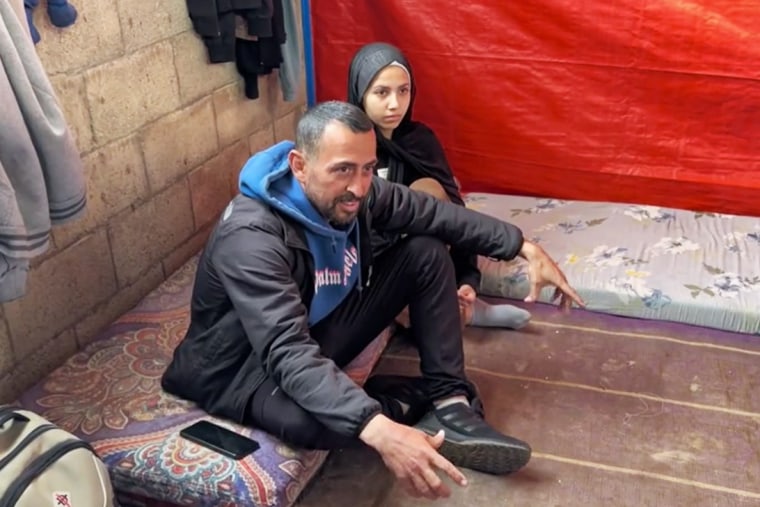
Now, her family is trying to leave the enclave so Salma can get the medical treatment she needs — but the process is very difficult.
To leave the enclave through the Rafah border crossing, Palestinians can try and get their names added to a list of evacuees, but their travel needs to be approved by both Israeli and Egyptian authorities, according to Steve Sosebee, founder of the nonprofit organization HEAL Palestine.
“You can submit the names or try to get the names submitted, but it’s not always clear when they’re getting moved, or who’s responsible for approving them, or if they’re rejected, or the time that it takes,” he said, adding that if Palestinians receive approval, their names make it on a list published every night in Arabic. “It’s really a chaotic situation with no clear, transparent process in place.”
There are other options, including an Egyptian VIP travel company called Hala, which charges $5,000 or more per person to get evacuees through Rafah crossing into Egypt. But the fees are expensive and the request usually needs to come through family members of evacuees who are already in Egypt, Sosebee said.
Another option that’s even more rare, is that countries, such as the United Arab Emirates or Turkey, could use their influence to get patients transferred to hospitals there.
Sosebee says that there could be thousands of people like Salma, needing medical treatment they can only get abroad. At the end of January, Khaled Zayed, head of the Egyptian Red Crescent in North Sinai, told NBC News that only about 2,100 sick and injured people left Gaza through Rafah since the war started.
Sosebee said that it’s only become worse since. “And this is quite worrisome because there are people dying, there are kids dying from treatment that is available to them across the border, if only they had the ability to cross.”
“This is preventable,” he said.
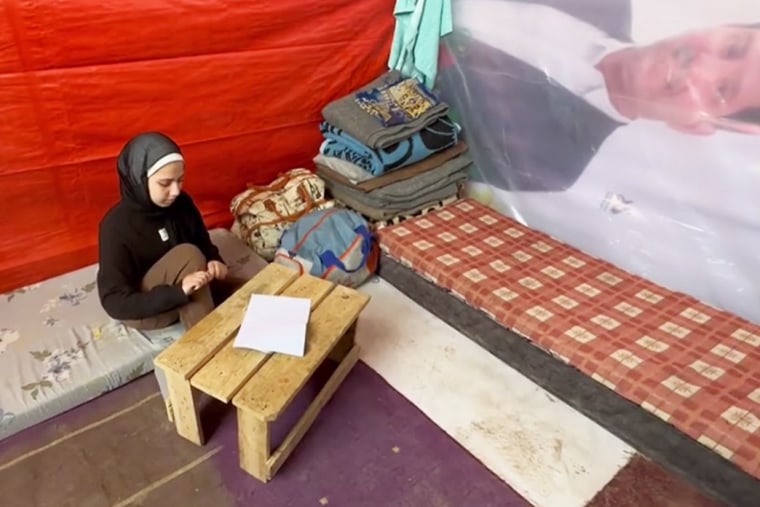
Salma and Ehab spoke to an NBC News crew from a makeshift room enclosed with tarps inside a warehouse, where the family is sheltering in Rafah. Backpacks and clothes hang from hooks on the cinderblock walls, and there were three small mattresses on the floor.
Now displaced three times — from north Gaza, to Khan Younis and now, Rafah — Salma sat down to write a poem about returning to her home.
“I returned to it after a long time,” she wrote. “After a fire burned its landmarks, after a sun shone in its darkness. After a longing that lasted in our hearts, after a hope that left us disappointed. After a pain that seeped into our chests, after an oppression that lingered along with their betrayal, with their audacity, with their injustice, with their brutality.”
“Where is the world? Where is humanity?” the 14-year-old asked in her poem.
“To understand this story, you don’t have to be a Muslim or an Arab,” she wrote. “Only a human.”
Source: | This article originally belongs to Nbcnews.com
